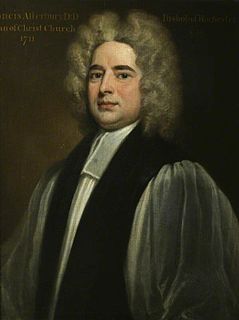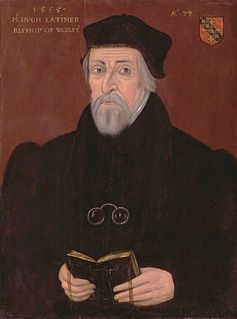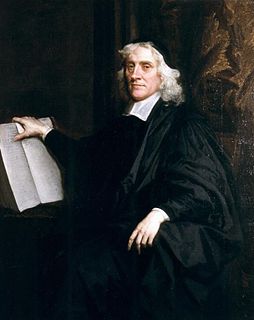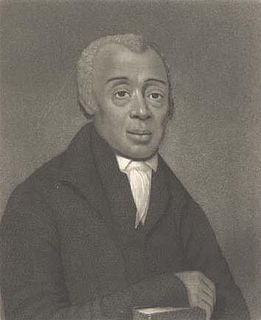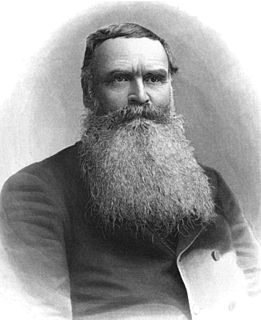A Quote by Francis Atterbury
A good man not only forbears those gratifications which are forbidden by reason and religion, but even restrains himself in unforbidden instances.
Related Quotes
Sensible of the importance of Christian piety and virtue to the order and happiness of a state, I cannot but earnestly commend to you every measure for their support and encouragement ... Manners, by which not only the freedom, but the very existence of the republics, are greatly affected, depend much upon the public institutions of religion and the good education of youth; in both these instances our fathers laid wise foundations, for which their posterity have had reason to bless their memory.
Every man has some reminiscences which he would not tell to everyone, but only to his friends. He has others which he would not reveal even to his friends, but only to himself, and that in secret. But finally there are still others which a man is even afraid to tell himself, and every decent man has a considerable number of such things stored away. That is, one can even say that the more decent he is, the greater the number of such things in his mind.
At the same time that she [nature] solicits him [man] to follow her not only into her open walks, but likewise to explore her secret recesses, she - fails not to reward him with the purest gratifications of the mind, because at every step he takes, new instances of beauty, variety, and perfection are unfolded to his view.
I know nothing which life has to offer so satisfying as the profound good understanding, which can subsist, after much exchange ofgood offices, between two virtuous men, each of whom is sure of himself, and sure of his friend. It is a happiness which postpones all other gratifications, and makes politics, and commerce, and churches, cheap.
Criticism has plucked the imaginary flowers on the chain not in order that man shall continue to bear that chain without fantasy or consolation, but so that he shall throw off the chain and pluck the living flower. The criticism of religion disillusions man, so that he will think, act, and fashion his reality like a man who has discarded his illusions and regained his senses, so that he will move around himself as his own true Sun. Religion is only the illusory Sun which revolves around man as long as he does not revolve around himself.
Those may justly be reckoned void of understanding that do not bless and praise God; nor do men ever rightly use their reason till they begin to be religious, nor live as men till they live to the glory of God. As reason is the substratum or subject of religion (so that creatures which have no reason are not capable of religion), so religion is the crown and glory of reason, and we have our reason in vain, and shall one day wish we had never had it, if we do not glorify God with it.
Religion has ever filled the mind of man with darkness, and kept him in ignorance of his real duties and true interests. It is by dispelling the clouds and phantoms of religion, that we shall discover truth, morality and reason. Religion diverts us from the causes of evils, and from these remedies which nature advocates, far from curing; it only aggravates, perpetuates and multiplies them.
Every man is of importance to himself, and, therefore, in his own opinion, to others; and, supposing the world already acquainted with his pleasures and his pains, is perhaps the first to publish injuries or misfortunes which had never been known unless related by himself, and at which those that hear them will only laugh, for no man sympathises with the sorrows of vanity.
Nothing that is not a real crime makes a man appear so contemptible and little in the eyes of the world as inconsistency, especially when it regards religion or party. In either of these cases, though a man perhaps does but his duty in changing his side, he not only makes himself hated by those he left, but is seldom heartily esteemed by those he comes over to.
The true value of the Christian religion rests, not upon speculative views of the Creator, which must necessarily be different in each individual, according to the extent of the knowledge of the finite being, who employs his own feeble powers in contemplating the infinite: but it rests upon those doctrines of kindness and benevolence which that religion claims and enforces, not merely in favour of man himself but of every creature susceptible of pain or of happiness.
